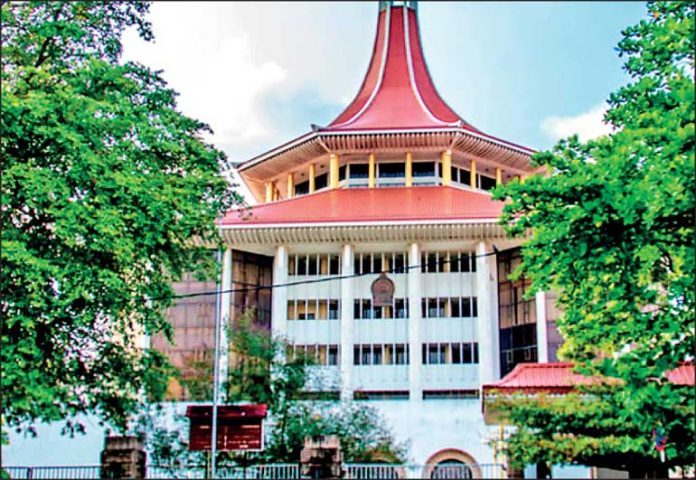The Supreme Court has ruled that six police officers attached to the Kottawa Police Station violated the fundamental rights of omnibus operator Vithanage Sunil, ordering them to jointly pay Rs 1 million in compensation from their personal funds.
Delivering its judgment on 10 October, Justice Menaka Wijesundera said the Court found that the Petitioner had been subjected to torture, and cruel, inhuman, and degrading treatment following a brutal assault in 2016. Leave to proceed had been granted under Articles 11, 12(1), and 13(1) of the Constitution.
The SC bench comprised Justices Yasantha Kodagoda and Janak de Silva.
The 2016 Assault and Alleged Cover-Up
The incident occurred around 10.00 p.m. on 9 July 2016, as Sunil was returning home along Rukmale Road, Kottawa. According to his petition, Sub Inspector Cyril Perera (2nd Respondent) verbally abused him, pointed a pistol at his head, and threatened to kill him.
Two constables, Sampath (4th Respondent) and Chandra Niroshan (5th Respondent), were then called to the scene. They allegedly slapped the Petitioner, forced him to kneel, and joined the 2nd Respondent in beating him inside his own bus. Police Constable Nandana Piyal (3rd Respondent) later arrived and continued the assault, despite repeated pleas from Sunil’s wife, mother, and brother-in-law to stop the attack.
Sunil was reportedly bleeding from his face, mouth, chest, hands, and legs when he was taken to the Kottawa Police Station. There, OIC Inspector L.P.B. Samarasinghe (1st Respondent) allegedly assaulted him again before placing him in a cell.
The following day, Sunil was produced before the Homagama Magistrate on a charge of possessing 550 mg of heroin, which he categorically denied. The Supreme Court later found serious doubt about the legitimacy of this charge, suggesting it was fabricated to conceal the unlawful assault.
Court Findings: Evidence of Torture and Procedural Failures
In its detailed ruling, the Court relied on both medical and eyewitness evidence to conclude that Sunil’s fundamental rights had been violated.
- Conflicting Medical Reports: The first medico-legal report dated 10 July 2016 recorded no injuries. However, a second report—ordered by the Magistrate and prepared by Dr. Pranavan on 12 July—documented multiple injuries to Sunil’s eyes, face, chest, and forearms, and confirmed there was no clinical evidence of drug dependence. The doctor who authored the first report admitted during cross-examination that he could not identify the person he had examined.
- Eyewitness Accounts: Affidavits from Sunil’s wife, brother-in-law, and neighbours consistently confirmed that he was handcuffed, assaulted inside his bus, and bleeding from the mouth. One witness also overheard police discussing plans to falsely implicate him in a drug offence.
- Procedural Breach: The Court noted that police failed to produce the Petitioner before a Judicial Medical Officer immediately after his arrest, a serious procedural violation.
Fundamental Rights Violated
The Supreme Court held that the police officers’ conduct amounted to multiple violations of fundamental rights:
- Article 11: The assault and degrading treatment constituted torture, violating the absolute constitutional prohibition against cruel, inhuman, or degrading treatment.
- Article 12(1): The failure to observe lawful procedures denied the Petitioner equal protection of the law.
- Article 13(1): The arbitrary arrest, detention, and fabricated drug charge breached the right to liberty and to be informed of the reason for arrest.
The Court identified SI Cyril Perera and PC Nandana Piyal as directly responsible for the assault, while OIC Samarasinghe, PC Sampath, PC Chandra Niroshan, and SI Premasiri were held liable for their failure to prevent or act against the abuse.
Accordingly, the Court ordered the six officers to personally pay Rs 1 million in compensation to Vithanage Sunil for the violation of his fundamental rights.




